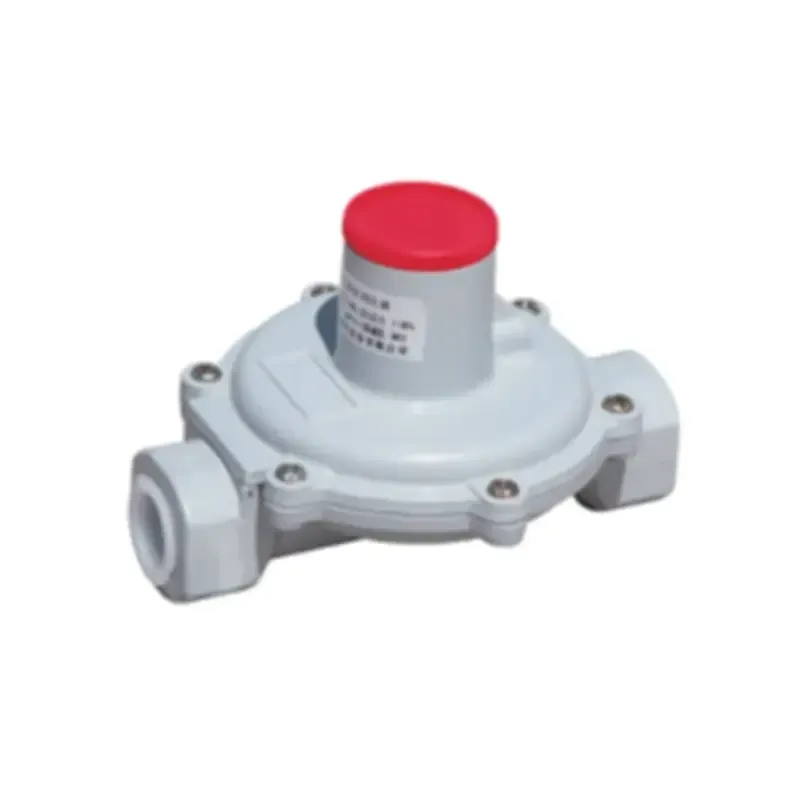
Nov . 16, 2024 04:26
Back to list
electric valve
Understanding Electric Valves A Comprehensive Overview
Electric valves are an essential component in a wide range of industrial processes and applications. They play a crucial role in controlling the flow of fluids, gases, and other materials through piping systems. This article provides an in-depth analysis of electric valves, discussing their types, applications, advantages, and how they have revolutionized fluid control systems across various industries.
What are Electric Valves?
Electric valves are automated devices that use electrical power to operate a valve mechanism. They are designed to regulate the flow of liquids and gases by opening, closing, or partially obstructing the passageway. The operation of electric valves is typically controlled by an electric actuator, which responds to signals from a control system, such as a Programmable Logic Controller (PLC) or a simple on/off switch.
Types of Electric Valves
There are several types of electric valves, each tailored to specific applications and control requirements
1. Electric Ball Valves These valves utilize a ball-shaped disc to control flow. They are known for their quick operation—often requiring only a quarter turn to open or close—and are ideal for applications needing rapid on-off control.
2. Electric Butterfly Valves Featuring a disc that rotates to allow or restrict flow, butterfly valves are lightweight and compact. They are commonly used in large diameter pipes and are effective for throttling applications.
3. Electric Gate Valves These valves use a sliding gate to control flow. While they are not ideal for throttling, they are perfect for completely opening or closing a pipeline.
4. Electric Globe Valves These valves have a spherical design and provide excellent flow regulation, making them suitable for governing the flow with precision.
Applications of Electric Valves
Electric valves find their application in various industries
electric valve

- Water and Wastewater Treatment In these facilities, electric valves manage the flow of water, ensuring effective treatment processes. They help maintain appropriate pressure and flow rates, critical for system efficiency.
- Chemical Processing The chemical industry relies on electric valves to control the flow of corrosive and hazardous substances. Precision and reliability are paramount in these applications to prevent leaks and ensure safety.
- HVAC Systems Electric valves are integral to heating, ventilation, and air conditioning systems, regulating the flow of air and fluids for temperature control and comfort.
- Oil and Gas In this sector, electric valves play a vital role in the extraction, transportation, and refining processes, ensuring the safe and efficient movement of crude oil and natural gas.
Advantages of Electric Valves
Electric valves offer a host of benefits
1. Precision Control Electric valves provide accurate control over flow rates, allowing for precise adjustments in processes. This capability is essential in applications that require tight control of fluid dynamics.
2. Automation The integration of electric valves into automated systems enhances operational efficiency. They can be programmed to respond to changes in system conditions, reducing the need for manual intervention.
3. Energy Efficiency With the ability to quickly open and close, electric valves minimize energy consumption in comparison to traditional pneumatic or hydraulic systems.
4. Safety and Reliability Electric valves can be designed with fail-safe features, ensuring that they revert to a safe state in case of power failure. This reliability is critical in preventing accidents and maintaining safe operations.
Conclusion
In summary, electric valves are indispensable in modern industrial applications, offering precise control, automation, and reliability. Their widespread use across various sectors highlights their importance in enhancing operational efficiency and safety. As technology continues to advance, electric valves are likely to incorporate more sophisticated features, further solidifying their role as key players in fluid control systems. Understanding the various types and applications of electric valves can help industries make informed decisions, ensuring optimal performance in their operations. Whether in water treatment, chemical processing, or HVAC systems, electric valves will continue to be a cornerstone of efficient fluid management.
Next:
Latest news
-
Safety Valve Spring-Loaded Design Overpressure ProtectionNewsJul.25,2025
-
Precision Voltage Regulator AC5 Accuracy Grade PerformanceNewsJul.25,2025
-
Natural Gas Pressure Regulating Skid Industrial Pipeline ApplicationsNewsJul.25,2025
-
Natural Gas Filter Stainless Steel Mesh Element DesignNewsJul.25,2025
-
Gas Pressure Regulator Valve Direct-Acting Spring-Loaded DesignNewsJul.25,2025
-
Decompression Equipment Multi-Stage Heat Exchange System DesignNewsJul.25,2025

